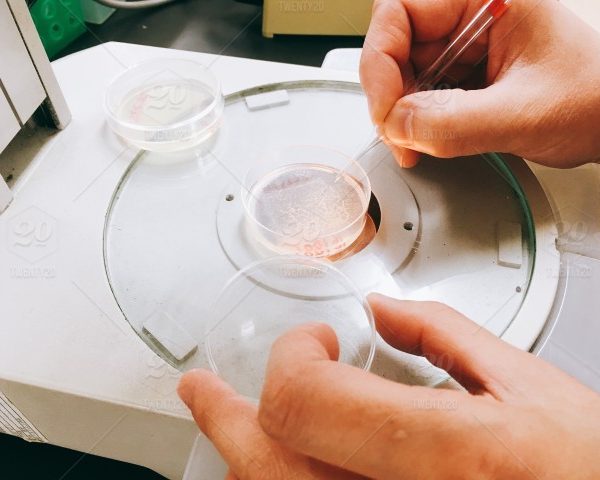
Dentists encounter dental infections on a daily basis. These include gum infections, dental abscess and infections involving the gums around wisdom teeth. Infection is also a minor complication following the extraction of teeth. In these situations we are often asked by our patients to prescribe a course of antibiotics. It is estimated that, worldwide, dentists are responsible for between 7% and 11% of all antibiotics prescribed. Many of our patients believe that this is a quick and permanent solution to an infection. The reality though is vastly different.
There are several problems and risks associated with the use of antibiotics. These include:
- Side effects
- Interactions with other drugs that a patient may be taking
- Toxicity
- Development of resistant strains of bacteria, also known as Antibiotic Resistance
The concept of “Antibiotic Resistance” is a new and dangerous phenomenon which poses a huge health risk. It is estimated that there are approximately 25000 deaths in Europe every year due to antibiotic resistance.
Every time a person takes antibiotics, sensitive bacteria are killed but resistant bacteria may grow and multiply. Eventually the antibiotic no longer works and cannot kill that strain of antibiotic. The bugs that are resistant to antibiotics are often referred to as “superbugs”. These resistant organisms can’t be treated with conventional antibiotics, and if antibiotics no longer work on them, it can be life-threatening.
There are many situations in dentistry where antibiotics are indicated, but there are several other situations where it is not considered to be an effective treatment. A typical example of this is tooth ache. Very often patients present as an emergency complaining of a throbbing or aching tooth, the cause of which is usually pulpitis. Pulpitis can be caused by trauma or tooth decay and makes the nerve or ‘pulp’ of the tooth inflamed. This in turn causes the tooth to be tender and painful. A dentist may often incorrectly describe this as an “infected tooth”. The problem is that acute pulpitis can only be treated by extracting the offending tooth or taking the pulp of the tooth out (often referred to as extirpation or drainage). This first stage will help to reduce pain, but has to be followed up by Root Canal Treatment in order to definitively treat the tooth. The principle in this type of situation is to remove the cause of the infection, in this case, the damaged pulp.
Antibiotics, in this situation, may help initially but once the antibiotic effect wears off the patient is back where they started. This inappropriate prescribing of antibiotics contributes to Antibiotic Resistance.
There are obviously many other situations where Antibiotics are necessary. Examples Include:
- When there is a risk of the infection spreading
- Severe swelling that may affect breathing
- Fever is present
- Systemic symptoms are present such as rapid heartbeat
- Lymph nodes are tender and swollen.
All the above signs indicate that the infection has spread into our blood system, and in these cases taking antibiotics are definitely appropriate.

Over the years prescribing practices have changed dramatically. Prophylactic prescribing of antibiotics in a healthy patient is very rare, as is routine post-operative prescribing after extractions, and dentists have a responsibility to keep up to date with the latest evidence based guidance.
The responsibility to combat Antibiotic Resistance not only lies with the prescribing dentist, but also with the patient. There are some important rules to consider when taking antibiotics:
- Always complete the course of antibiotics, never cut the course short just because the symptoms have gone
- Take the antibiotics exactly as they have been prescribed
- Have regular check-ups in order to reduce the risk of having dental problems in the first place.
- Don’t keep leftover antibiotics to use next time you are ill. (There shouldn’t be any left if you have taken the course correctly)
- In many countries antibiotics can be bought over the counter. Never take any drugs unless they have been prescribed by your dentist or doctor.
- Don’t delay treatment; it will increase the likelihood of you getting more infection.
- When having a tooth out, or any other minor surgical procedure, please follow the post-operative instructions your dentist gives you as carefully as possible. This is a more effective way to reduce the risk of post-operative infections than antibiotics.
As dental professionals, we have a duty to use the best evidence-based practice when prescribing antibiotics, and to educate our patients about what we are prescribing and the reasons for doing so. It is vitally important that the behaviour of the public also changes. We need to safeguard antibiotic use for when it is really needed, and in this way we can help stem the rise of Antibiotic Resistance.
This article was written by Dr. Emmanuel Lazanakis, owner and principal of Sussex Dental Group.

References:
- National Institute for Health and Care Excellence (2015) Antimicrobial stewardship: systems and processes for effective antimicrobial medicine use. NICE guidelines [NG15]
- Johnson TM, Hawkes J. Awareness of antibiotic prescribing and resistance in primary dental care. Prim Dent J 2014 Nov;3(4):44-47.
- FGDP Antimicrobial Prescribing for GDPs

